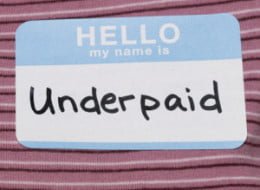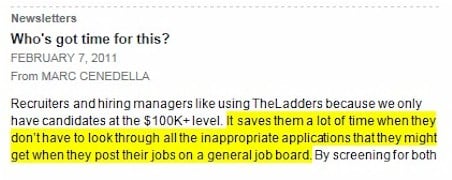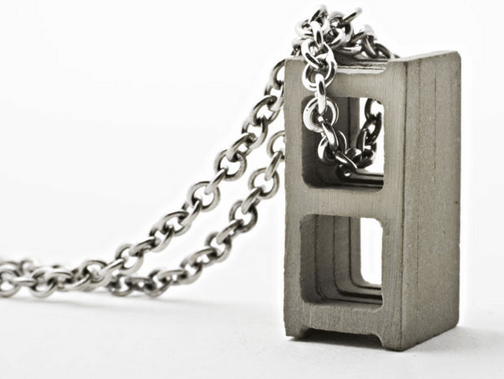In the May 6, 2014 Ask The Headhunter Newsletter, a reader wonders what to do while waiting for the job offer:
I went in for an interview and all went great. I met with the personnel manager and the division manager. They called me back in a few days later to meet with the regional manager since he was in town. It also went well. The discussion was more general and laid back. I went back today to take a test.
I am trying not to get too fired up about all of this. But, I have to think that no company would subject an applicant to all of this without leaning toward the hire. When should I expect an offer? I figure that there can’t be much more for me to do than meet with some more top-level managers and take a personality test. Do you agree?
Nick’s Reply
Great expectations can leave you high and dry.
“I have to think that no company would subject an applicant to all of this without leaning toward the hire.”
Never, ever, ever get into this mindset. This is the point where people start to build unreal expectations because they feel they’ve “invested so much.” They’ve been invited back for lots of interviews. Everything “has gone well.” They start to believe the employer is now “heavily invested,” too. They wonder not whether an offer will be made, but how long it will take. The outcome is obvious, right?
Absolutely not.
T he truth is, you have no idea what a company’s threshold is for taking action. Some companies will string you along — often unwittingly — for months, then take no action at all. As a headhunter who has dealt with more interviews than any job hunter ever will, I can tell you that most job opportunities go south.
he truth is, you have no idea what a company’s threshold is for taking action. Some companies will string you along — often unwittingly — for months, then take no action at all. As a headhunter who has dealt with more interviews than any job hunter ever will, I can tell you that most job opportunities go south.
In my experience, there is little correlation between how well the interviews have gone and whether a hire is made. Of course, when the outcome is positive, we can look back and see that everything clicked in the interviews. But much more often we’re left scratching our heads, wondering what went wrong.
For reasons that are usually clear as mud, a seemingly positive interview process often stalls and dies. You never find out why. And you couldn’t have predicted the result.
So what is my point? Manage your expectations so you can manage your job search. Don’t get sucked into foregone conclusions, because that will lead you to waste your time. While you’re counting on that “sure thing,” you’re missing other opportunities. There is no sure thing.
You should do your best with every job opportunity. Follow the process through to the end. Remain motivated and enthusiastic. Ask for feedback as you proceed. (That’s legit and important.)
What can you do to optimize your chances for a job offer? See “Playing hardball with slowpoke employers”, pp. 15-16, in Fearless Job Hunting, Book 8: Play Hardball With Employers.
Excerpt:
How to Say It: What should you say to the hiring manager before your job interview ends? This question baffles job hunters, but the answer is simple. Say: “I want this job.” Just four words. If the employer is on the fence, expressing this simple commitment can lead to a job offer.You’ll find this and more tips in Play Hardball With Employers:
- Do they owe me feedback after an interview?
- What’s the secret to the thank-you note?
- How can I push the hiring decision?
- Thanks is not enough
- Get an answer at the end of the interview
But don’t build expectations that distract you from your larger goal. Always have another opportunity on deck because most deals go south.
Don’t let my advice discourage you. Use it to strengthen your strategy. Motivation and a positive attitude are crucial. But never start believing, “I can tell they’re going to make me an offer.” Because you can’t. While you’re waiting for that offer, set the next opportunity in motion. That’s the only way to control your job search.
Where’s the job offer? What holds up job offers? How have you dealt with delays? Is there anything you can do to force a decision to hire you?
: :


 The Q&A section of the presentation was great — but of course, there were so many questions that we couldn’t get to them all.
The Q&A section of the presentation was great — but of course, there were so many questions that we couldn’t get to them all.















